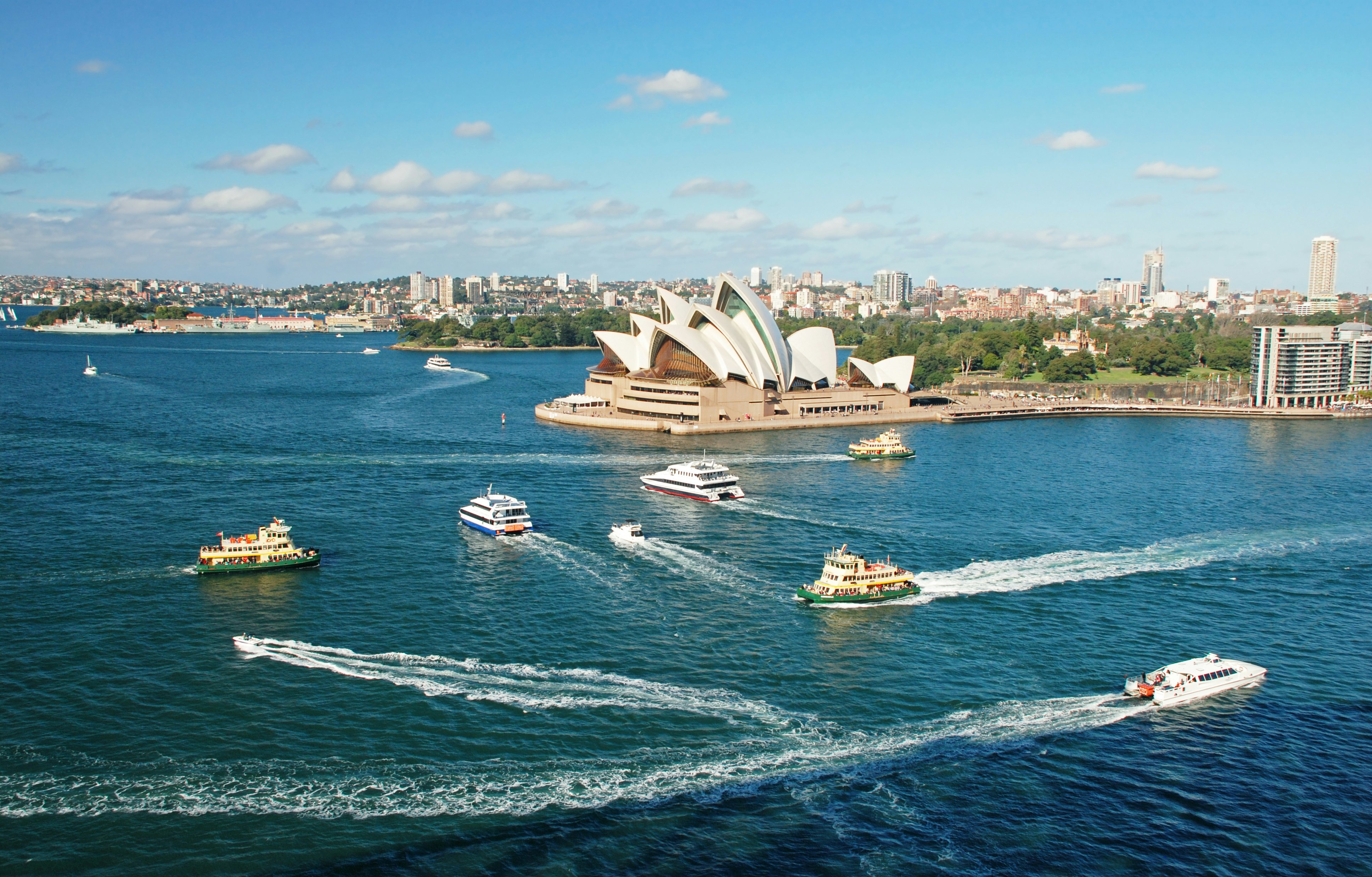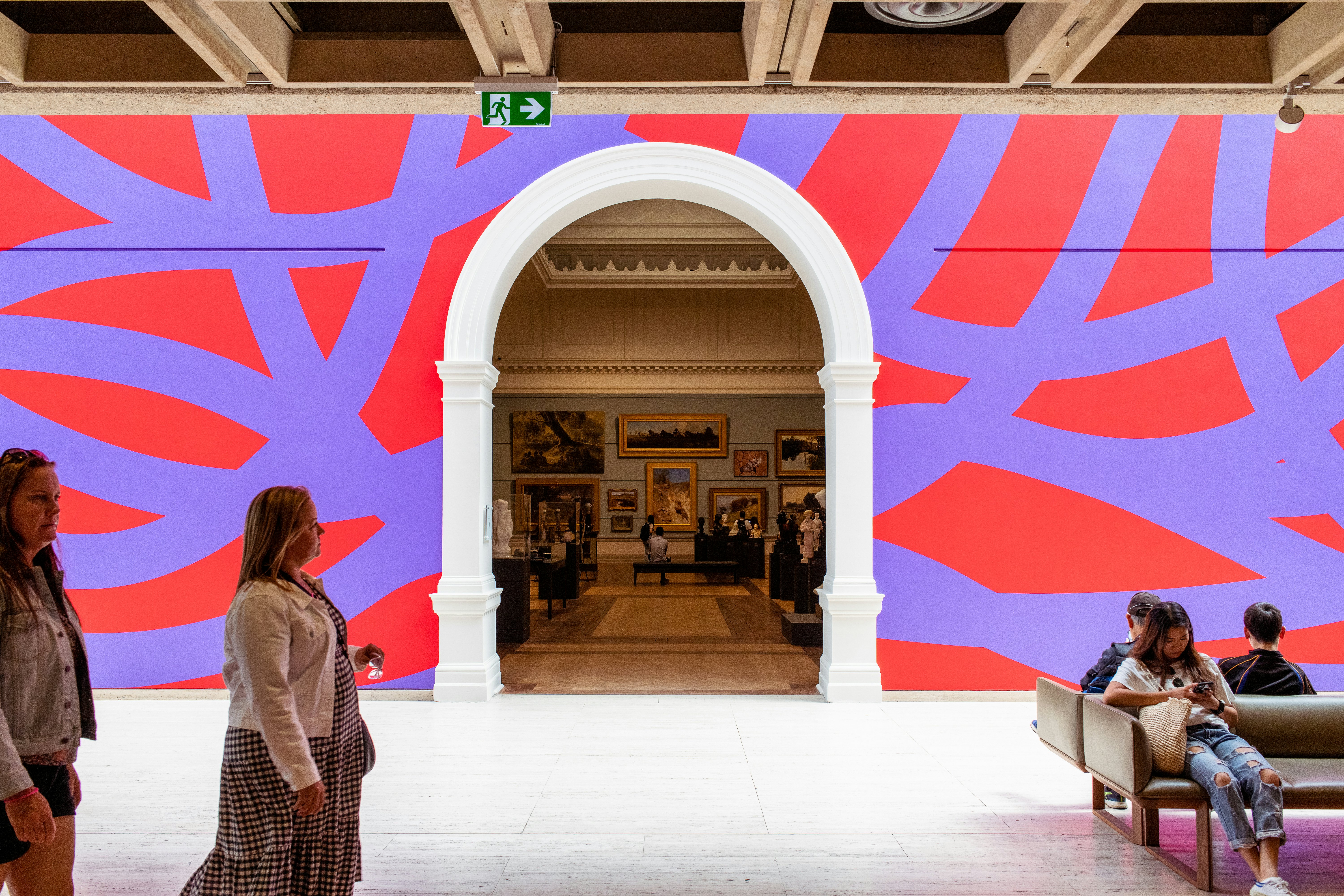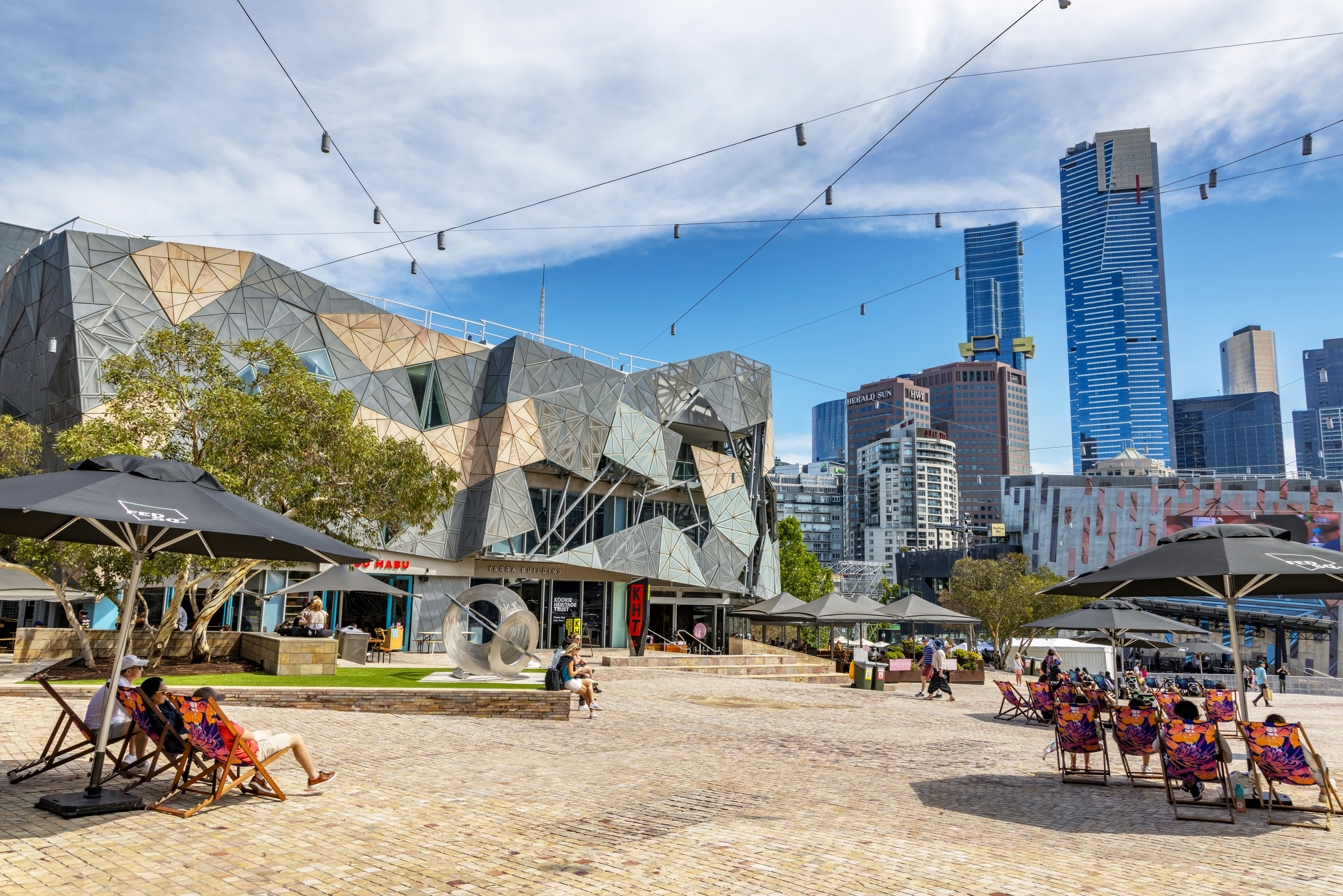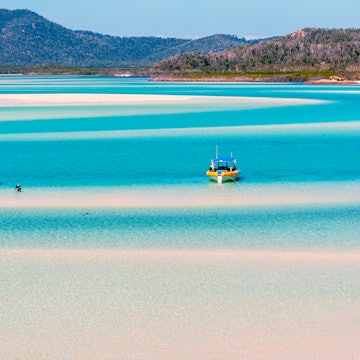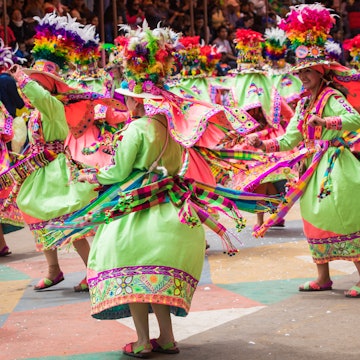
Melbourne vs Sydney: Which Australian city should you visit?



Left: Sydney Rocks on Bondi Beach. GagliardiImages/Shutterstock; Right: CBD scenes near Mid Air Restaurant and Bar, Melbourne. Sarah Pannell for Lonely Planet
Sydney and Melbourne both captivate travelers in their own way. Ideally, on a sweeping Australian itinerary you'd take your time in each of the country's two largest cities, savoring the delightful differences. To help you decide whether to fly your flag for Sydney's beaches and flair or for Melbourne's charm and culture, two travel writers make a case for their favorite.

Sydney shines its dazzling smile on everyone
Ivy Carruth traded Georgia peaches for Sydney beaches 13 years ago and knows exactly how many steps it takes to get from the Opera House to a negroni with a view. She unapologetically waves the Harbour City flag in the great Sydney versus Melbourne debate.
For me, Sydney is not just home, it’s the blueprint for everything I love in a destination, because it leaves room for your own version of the city.
We hear you, Melbourne, always going on about your culture and coffee; but Sydney’s star simply shines brighter. And listen, there’s really no need to choose sides – she says, with her side clearly chosen – they’re both world-class destinations. Yet as the dazzle and variety of Sydney’s top experiences endlessly remind you, smart and beautiful can be found in one pretty package.
Ferries around the Sydney Opera House. Jiri Foltyn/Shutterstock
You want to be outside and stay outside
Sydney invites you outside again and again, because staying in feels like missing the main event. Coastal tracks and harborside trails wind through some of the city’s most scenic terrain, offering cliffside views, sea breezes and – from May to November – whale sightings that turn a morning stroll into a spiritual experience.
If you're in the mood for a ride, grab a flat white and hop on the ferry. Where else does getting around on public transportation double as a well-priced sightseeing tour? No matter if you're heading to one of the many spectacular beaches or a nature reserve, you'll encounter native flora and fauna, from curious bandicoots to screeching cockatoos, all within reach of the city.
Hot tip: The best view of the Sydney Opera House and Harbour Bridge is hands down from the ferry, so be ready to point and click.
But the galleries and culture may tempt you back in
From the light-filled expanses of the Art Gallery of New South Wales’ Sydney Modern to the ever-evolving exhibitions at the Museum of Contemporary Art and the powerful storytelling at the Sydney Jewish Museum, the city presents countless ways to engage and reflect – through painting, performance, photography, installation and a strong, ongoing presence of First Nations art and perspectives. Sydney doesn’t make a spectacle of its creativity, but the access to art here is remarkable.
Sydney’s creative pulse runs through its neighborhoods, not just its institutions. At Carriageworks in Redfern, boundary-pushing design and performance take center stage. In Darlinghurst and along Oxford St, murals, long-standing LGBTIQ+ venues and independent boutiques reflect a culture that’s not only expressive and inclusive but also constantly evolving.
And then there’s the fine dining: quietly confident, deeply considered and often set against backdrops that feel almost too good to be true. In Sydney, the menus shift with the season, guided by what’s native and what speaks to the place. The views may steal your attention but never take the spotlight away from the plate.
The food scene here is defined by multiculturalism and fresh produce. Whether it's hand-pulled noodles in Chinatown or seafood towers in Manly, the city doesn’t play favorites. In Marrickville, you’ll find Vietnamese bakeries next to Greek delis and craft breweries that make a mean miso stout. It’s the perfect create-your-own-food-tour opportunity and a solid reminder that sometimes, comfort beats concept.
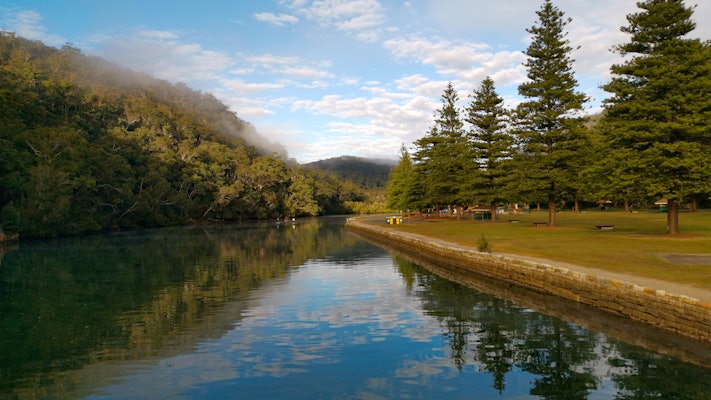
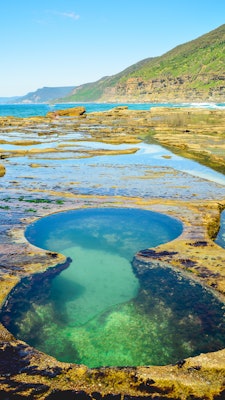
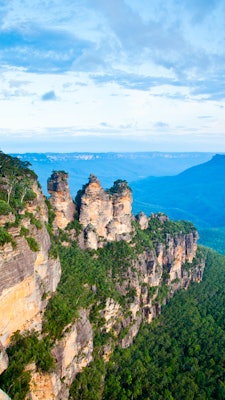
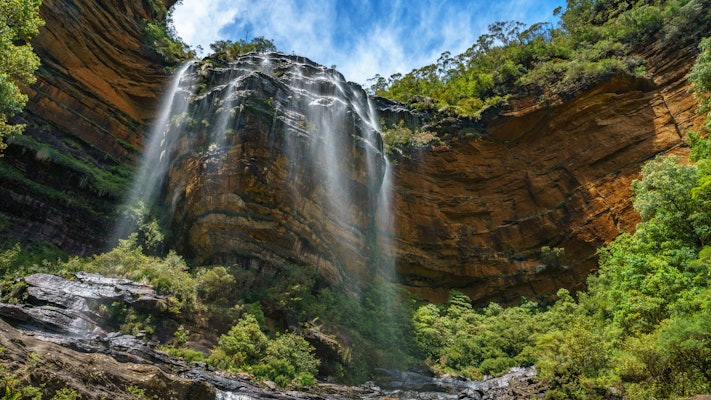
It is wildly easy to get out in the wild
Sydney’s not the kind of place you need to escape from, but if you want to swap skyline for escarpment or surf for stillness, the day trip options are wildly good.
An hour and a bit from the city, you’re suddenly in a different climate zone altogether. The brisk air in the Blue Mountains fills dramatic gorges. On the trails, lyrebirds outnumber tourists if you time it right. Sure, the Three Sisters get all the attention, but the real magic is in the side tracks: waterfalls you can swim under, clifftop views with zero crowds and heritage hotels where the tea service is still taken seriously.
South of the city, the Royal National Park is technically a park, but it behaves more like a lifestyle. Visit the Figure Eight Pools, paddle the Hacking River or simply walk among the house-sized ferns and foliage. Look up every now and then: a dozing koala might be tucked into the branches (they’re most active at dawn, dusk and right before the sun slips away).
Need a dose of charm? Hawkesbury’s sandstone cottages cluster on winding roads, and its riverside cafes know their way around a long lunch. Take a boat, take your time. Or go north to Ku-ring-gai Chase National Park, where you can kayak past ancient Aboriginal rock engravings and pretend, briefly, that this is a regular Tuesday.
Sydney: she’s laid-back and outdoorsy and comes with an eye for art appreciation, a taste for killer cuisine and a smile for everyone. Melbourne might win your mind, but Sydney will steal your heart.
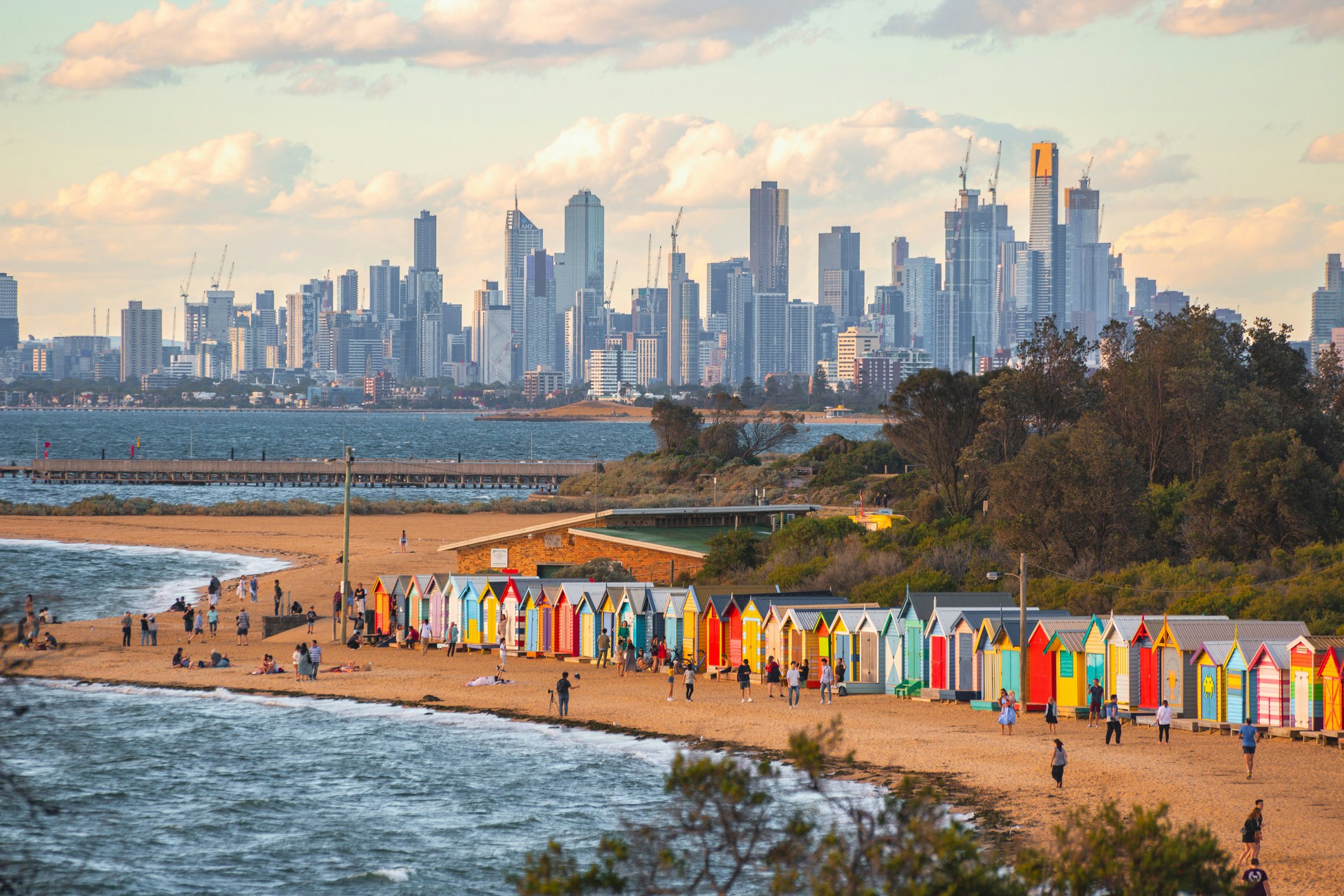
Melbourne delivers on culture and personality
Lonely Planet writer and editor Tasmin Waby has lived in Melbourne, Sydney, New York, London and rural Victoria (shout out to Beechworth in autumn), but if she had to pick one place to call home forever, Melbourne would be the winner without hesitation.
Yes, Sydney is stunning. But if it’s culture you’re after, Melbourne delivers. Famous for its pocket-sized cocktail bars, lanes filled with incredible murals and street art, and yearlong calendar of festivals and events (anchored by the Australian Open tennis tournament each summer), Melbourne more than makes up for a lack of showy natural beauty with personality.
That said, a stay in Melbourne does give you easy access to some incredible nature. For alpine plains and rugged mountains, you can zoom off to the High Country around Mt Buller. If fine-dining among vineyards and orchards is part of your plans, the Mornington Peninsula and the Yarra Valley are both on Melbourne’s doorstep. You don't even need a car to get well and truly out of town.
The Waterwall at the National Gallery of Victoria. 365 Focus Photography/Shutterstock
Slip from forest bathing to art gazing
I have to be honest: the city's beaches might be better appreciated while roller-skating along the expansive waterfront. But a mere hour’s drive west and you’re on the internationally celebrated Great Ocean Road, with its wild surf beaches and pockets of rainforest for forest bathing. And speaking of forests, you can wander among towering mountain ash, eucalypts and lush ferns in Melbourne’s Dandenong Ranges, just a metro train ride away.
For a family-friendly day out, Melbourne has you covered. There’s the Melbourne Museum, Scienceworks or the Children's Garden at the Royal Botanic Gardens to keep little ones entertained. The city center is also blessed with parklands and playgrounds, from Birrarung Marr to Flagstaff Gardens; travelers with kids are well catered for.
Did I mention art? Melbourne’s National Gallery of Victoria has two campuses, a short walk apart. A 1960s modernist edifice houses its international collection plus international blockbuster exhibitions. At Federation Square, on the Yarra, the Ian Potter Centre: NGV Australia is dedicated to works by Australian artists, including an illuminating Aboriginal and Torres Strait Islander collection. Meanwhile The Fox: NGV Contemporary is under construction – set to open in 2028. Watch this space.
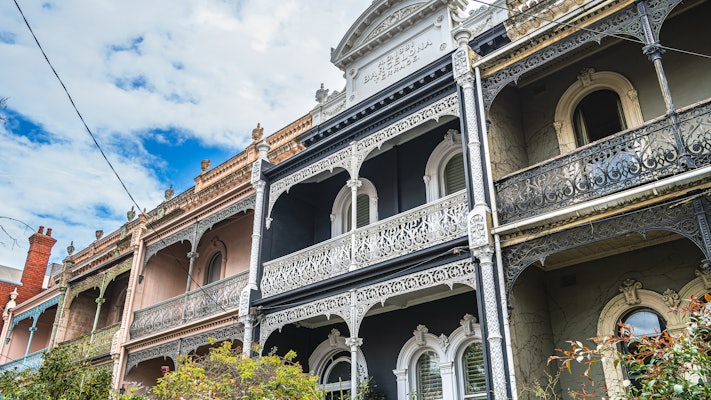



Melbourne’s dining and nightlife eclipse any comparison
Looking for more urbane distractions? Melbourne’s the undisputed winner when it comes to shopping. The city center is awash with designer boutiques and luxury emporiums. But there are also local shopping strips where you’ll find vintage stores, up-and-coming labels and street-wear brands – check out the Brunswick, Fitzroy, St Kilda and Windsor neighborhoods (for starters). Love a mall? Chadstone in Melbourne’s eastern suburbs beckons – and it comes with its own five-star hotel! I kid you not.
Melbourne’s dining scene is an ever-evolving galaxy of talent, with chefs who quickly become household names for their innovation and attention to detail in this city of foodies. While in Sydney there are plenty of places where the view outshines the menu, Melburnians take dining out a little seriously. There are too many five-star restaurants to even try to name-drop, and wherever you end up, you’re not going to be disappointed. From Ethiopian to Vietnamese, the food here is always served with pride.
After dark, Melbourne continues to outstrip Sydney. Intimate bars where cocktails are an art are the standard, and Melbourne’s live music scene is also having a renaissance, best epitomized by the reopening of the much-loved indie music Punters Club in Fitzroy. Liberal liquor license laws translate into an abundance of late-night options where you can kick on until the birds chirp in the dawn.
Seasonal shifts only up the interest
Sydney might take the prize for warmer weather – you’re not going to need a scarf and gloves up there. But what’s summer without winter? Melbourne has far more distinct seasons, plus a lot less rain to contend with. Give me autumn colors from crisp nights over soggy post-summer gloom any day.
If your idea of a good day starts with sunrise yoga at a spectacular beach and ends with a glass of wine by a shimmering harbor, Sydney is your town. If you’d rather spend your days gallery hopping and vintage shopping, followed by memorable dining and sipping cocktails till dawn, you’ll feel right at home in Melbourne.





